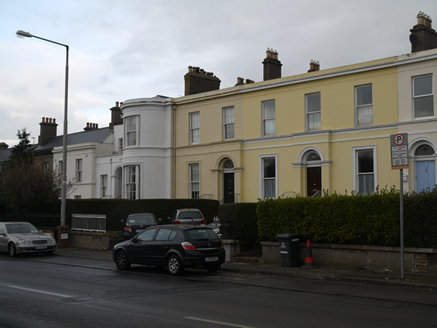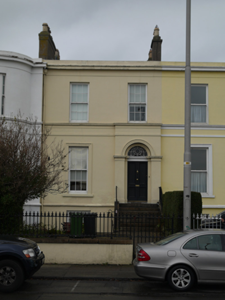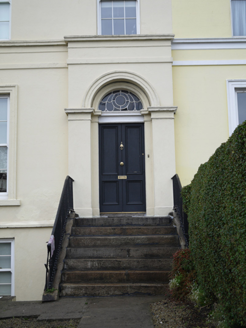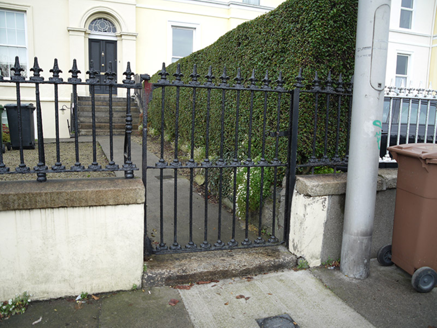Survey Data
Reg No
50030126
Rating
Regional
Categories of Special Interest
Architectural, Artistic
Previous Name
Hillview Terrace
Original Use
House
In Use As
House
Date
1845 - 1850
Coordinates
320204, 235794
Date Recorded
04/12/2014
Date Updated
--/--/--
Description
Terraced two-bay two-storey house over raised basement, built 1846, having two-storey return and extension to rear (north) elevation. Pitched M-profile roof hidden behind rendered parapet with cornice to front elevation, smooth rendered chimneystacks with clay chimneypots and some cast-iron rainwater goods. Lined-and-ruled rendered walls with stringcourses. Square-headed window openings, having moulded surround to ground floor opening, moulded render continuous sill course to first floor, and replacement windows. Round-headed door opening set in slightly projecting doorcase with moulded surround and pilasters with cornice, timber panelled door and tear-drop fanlight. Cut granite entrance steps and platform having cast-iron railings. Set back from road and having smooth rendered plinth walls with granite capping and cast-iron railings and cast-iron pedestrian gate.
Appraisal
The form of this house, with its raised entrance and mouldings, adds interest to the streetscape. Decorative historic fabric remains in the fanlight and cast-iron railings. It was built by Joseph Mannin on land leased from J.E.V. Vernon, as one of a terrace of five houses, it therefore shares proportions and details with its neighbours, resulting in a pleasing composition that can be appreciated due to its siting on the expansive seafront. The front garden boundary remains intact, contributing to the early suburban character of Clontarf Road. This terrace is among the earlier developments on the seafront, designated Clontarf Road after 1912, and appears to have replaced earlier buildings. The area was known as the Clontarf Sheds due its longstanding use as drying sheds for the fishing industry. A large number of new suburban houses were constructed from the nineteenth century onward in order to accommodate Clontarf's popularity as a middle class suburb.







